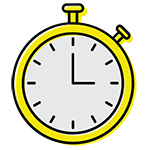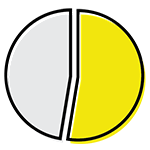Changing lives: Improving access to blood cancer treatments in Australia
Changing lives: Improving access to blood cancer treatments in Australia
These cancers affect people of all ages and walks of life, and despite improvements in life expectancy, the number of people diagnosed each year continues to grow. [1] As the 135,000 Australians living with blood cancer know all too well – the diagnosis is difficult, and treatment is even more challenging. [1]

An additional Australian is diagnosed with blood cancer every 27 minutes. [1]

Approximately 2,212 Australians died from leukaemia in 2022. [1]

Only 55% of patients are alive five years after diagnosis with multiple myeloma. [2]

Approximately 7,397 Australians were diagnosed with lymphoma in 2022. [3]
The opportunity for change
Many patients treated with newer and novel therapies can expect to live longer with less disease burden than conventional treatment options. [6, 7] Targeted therapies, including chimeric antigen receptor (CAR) T-cell therapy, bispecific antibodies and Bruton’s tyrosine kinase (BTK) inhibitors, are changing the treatment paradigm of blood cancers for the better. These treatments offer hope for patients, but only if they can access them within Australia’s health system.







References
2. Cancer Australia. Multiple myeloma in Australia statistics. 2022; Available from: https://www.canceraustralia.gov.au/cancer-types/myeloma/statistics.
3. Leukaemia Foundation. State of the Nation: Blood Cancers in Australia. 2023 [cited 2023 Dec 1]; Available from: https://www.leukaemia.org.au/how-we-can-help/advocacy-and-policy/state-of-the-nation/.
6. Dickinson, M. Expert Series interview: Associate Professor Michael Dickinson discusses CAR T-cell therapy. 2021.
7. Peter MacCallum Cancer Centre. CAR-T Cell Therapy. 2023 [cited 2023 Sep 20]; Available from: https://www.petermac.org/patients-and-carers/treatments/haematological-treatments/cellular-therapies-program/car-t-cell-therapy.
15. Australian Institute of Health and Welfare, Cancer data in Australia. 2023, AIHW: Canberra.

Renae Beardmore
Managing Director, Evohealth

Deanna
Mill
Advisor, Evohealth

James
Taylor
Advisor, Evohealth





